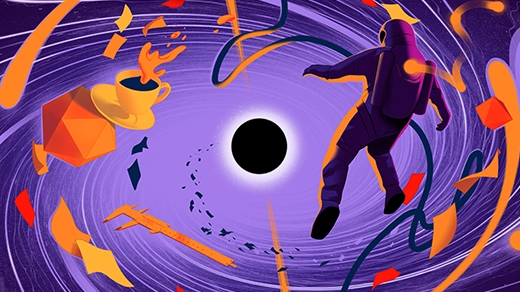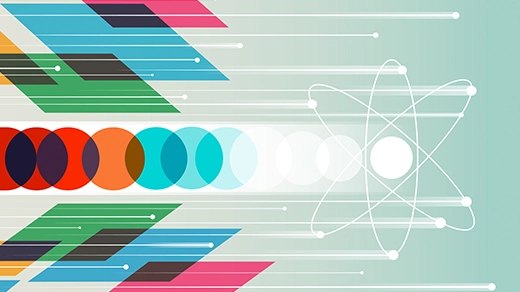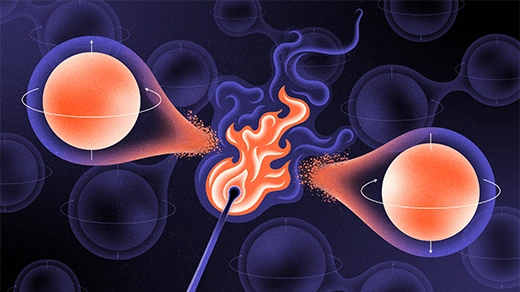What's up in
Thermodynamics
Latest Articles
The #1 Clue to Quantum Gravity Sits on the Surfaces of Black Holes
A black hole formula worked out in the 1970s remains the most concrete clue physicists have about the threads of the space-time fabric.
The Unraveling of Space-Time
This special issue of Quanta Magazine explores the ultimate scientific quest: the search for the fundamental nature of reality.
Can Thermodynamics Go Quantum?
The Industrial Revolution brought us the laws of thermodynamics, and new ideas about work, energy and efficiency. In this episode, co-host Steven Strogatz speaks with theoretical physicist Nicole Yunger Halpern about what these concepts might mean in the age of quantum mechanics.
Computer Scientists Prove That Heat Destroys Quantum Entanglement
While devising a new quantum algorithm, four researchers accidentally established a hard limit on entanglement.
What Is the Nature of Time?
Time is all around us: in the language we use, in the memories we revisit and in our predictions of the future. But what exactly is it? The physicist and Nobel laureate Frank Wilczek joins Steve Strogatz to discuss the fundamental hallmarks of time.
Is Perpetual Motion Possible at the Quantum Level?
A new phase of matter called a “time crystal” plays with our expectations of thermodynamics. The physicist Vedika Khemani talks with Steven Strogatz about its surprising quantum behavior.
Physicists Use Quantum Mechanics to Pull Energy out of Nothing
The quantum energy teleportation protocol was proposed in 2008 and largely ignored. Now two independent experiments have shown that it works.
The Physics Principle That Inspired Modern AI Art
Diffusion models generate incredible images by learning to reverse the process that, among other things, causes ink to spread through water.
Why This Universe? A New Calculation Suggests Our Cosmos Is Typical.
Two physicists have calculated that the universe has a higher entropy — and is therefore more likely — than alternative possible universes.








